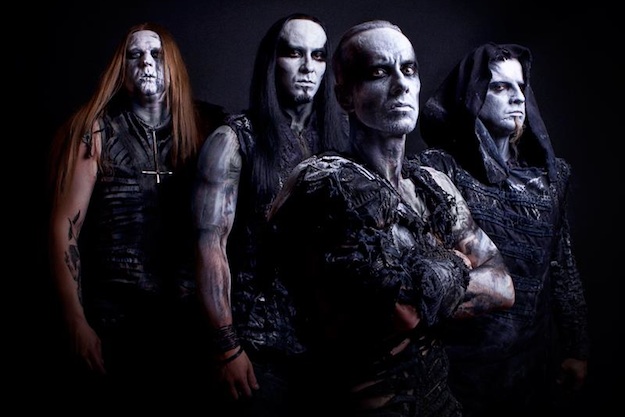Live Review: Behemoth @ Thalia Hall
Behemoth
Thalia Hall
Friday, April 29, 2016
Behemoth‘s The Satanist was a triumph of the human spirit. So on a night when the Polish metal band returned to Chicago to play the 2014 album in its entirety, it fit to have Thalia Hall in a celebratory mood.
Chants of “Nergal! Nergal!” (for the frontman) and “Behemoth! Behemoth!” would break out spontaneously, combined praise for the late-career masterpiece as well as Nergal successfully halting his leukemia. The musicians could have arrived in clown makeup with bicycle horns and struggled to replicate this exuberance; it’s just as well they kept the corpsepaint and razor-edged guitars.
Fortunately, the party mood didn’t pull apart the performance. One trick metal bands need to master is pouring energy into performances that don’t have much room for improvisation, yet Behemoth didn’t show any hint of disinterest in songs that have been toured into the pavement for two years. The stomp and chilling silence that interrupts “Blow Your Trumpets Gabriel” exploded into a staggering barrage. “Ora Pro Nobis Lucifer” seemed to kick up a cloud as its terrifying gallop gathered speed, and even the relatively tame title track found a muscular groove.
The band also enjoyed poking holes in their over-the-top stage set up, countering the cobra-strangled mic stands and spoken-word interludes by hulking around like zombies and, at the end, Nergal passing out communion wafers to fans in front.
A brief greatest hits set arrived in the encore, highlighted by a blistering “Chant For Eschaton 2000.” Near the end, Nergal stopped the show to thank the fans for support during the recent past, and the tone of his voice had an unusually sincere bent. It was his party, though; he could have cried if he wanted to.
Opener Myrkur seemed almost impervious to the audience’s attempts to cheer them on. Appearing as part of a quartet (though officially a solo act), Amalie Bruun took advantage of the dim lighting to cloak her face and surprise the audience with shifts between shrieks and eerie, Siren-like arias. The conservative stage approach was matched by the music, which, for all its grasp of black and Scandinavian metal, banked on traditional approaches. As some songs grew more violent, Bruun looked to be on the brink of jumping into the audience. Ever in control, she would retreat, turn her back, and return to the shadows.
— Steve Forstneger
Category: Live Reviews, Stage Buzz, Weekly












